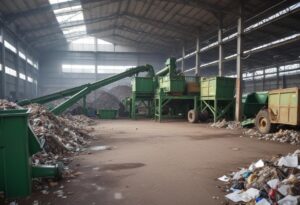Can India Lead the Way in Developing Climate-Resilient Crops?
India, a nation heavily reliant on agriculture, faces a critical challenge: ensuring food security in the face of a rapidly changing climate. Erratic rainfall patterns, rising temperatures, and extreme weather events threaten crop yields and disrupt agricultural livelihoods. However, India also possesses unique strengths that position it as a potential leader in developing climate-resilient crops.
The Urgency for Climate-Resilient Crops in India
India is the world’s second-most populous country, with a massive agricultural sector employing over half its workforce. This sector contributes significantly to the nation’s GDP. However, it’s highly vulnerable to climate change. Rising temperatures are projected to decrease crop yields by up to 25% by 2050 [1]. Increased heat stress can stunt plant growth, while erratic rainfall patterns disrupt irrigation schedules and lead to droughts or floods. These factors threaten food security for millions of Indians.
India’s Advantages in Crop Innovation
Despite the challenges, India has several strengths that can propel it towards developing climate-resilient crops:
Rich Biodiversity: India is a hotspot for crop diversity, boasting a vast gene pool of traditional and indigenous varieties. These crops, often adapted to local conditions, may hold valuable genetic traits for resilience to drought, heat, or salinity.
Advanced Research Institutions: India houses premier research institutions like the Indian Council of Agricultural Research (ICAR) and several agricultural universities. These institutions possess expertise in plant breeding, biotechnology, and stress physiology.
Government Initiatives: The Indian government recognizes the importance of climate-resilient agriculture. Initiatives like the National Mission on Sustainable Agriculture (NMSA) and the National Innovations in Climate Resilient Agriculture (NICRA) provide funding and support for research and development in this area.
Farmer Innovation: Indian farmers have a long history of adapting traditional practices to cope with diverse climatic conditions. Their knowledge and experiences can be valuable assets in developing new, resilient crop varieties.
Strategies for Developing Climate-Resilient Crops
Several strategies can be employed to develop climate-resilient crops in India:
Conventional Plant Breeding: This method involves crossing existing crop varieties with desired traits like drought tolerance or heat resistance. Modern breeding techniques like marker-assisted selection can accelerate the process.
Biotechnology: Advanced techniques like genetic modification can introduce specific genes for stress tolerance into crops. However, public acceptance and regulatory frameworks surrounding GMOs need careful consideration.
Promising Traditional Varieties: Many traditional and indigenous crop varieties may already possess inherent resilience. Research efforts can focus on identifying, characterizing, and promoting these varieties for wider adoption.
Improved Agricultural Practices: Alongside developing resilient crops, promoting sustainable agricultural practices like water-saving irrigation techniques, conservation tillage, and integrated pest management can significantly enhance resilience to climate change.
Challenges and Considerations
Developing and disseminating climate-resilient crops in India faces several challenges:
Funding: Research and development efforts require sustained funding. Public-private partnerships and international collaborations can play a crucial role in mobilizing resources.
Infrastructure and Extension Services: Effective dissemination of new crop varieties to farmers across the vast and diverse Indian landscape requires robust infrastructure and extension services.
Seed Security: Ensuring access to high-quality seeds of resilient varieties at affordable prices for smallholder farmers is critical.
Equity and Social Considerations: The needs of small and marginal farmers, particularly women farmers, must be considered when developing and disseminating new technologies.
Examples of Existing Initiatives
Several initiatives in India demonstrate progress in developing climate-resistant crops:
Developing Drought-Resistant Chickpea Varieties: ICAR research institutes have developed several drought-resistant chickpea varieties with higher yields under water-stressed conditions.
Heat-Tolerant Wheat Varieties: The development of heat-tolerant wheat varieties like HD 3226 is helping farmers cope with rising temperatures in North India.
Promoting Traditional Salt-Tolerant Rice: Research on traditional rice varieties like Pokkali, known for their salt tolerance, can help farmers in coastal areas threatened by rising sea levels.
The Road Ahead
India has the potential to become a global leader in developing climate-resilient crops. By leveraging its rich biodiversity, strong research institutions, and government support, India can develop and disseminate new crop varieties that can withstand the vagaries of climate change. However, continued investment, strengthening infrastructure, and ensuring equitable access to new technologies remain crucial for success. Collaboration with international partners and knowledge sharing with other developing nations can also accelerate progress. By taking these steps, India can not only safeguard its own food security but also contribute significantly to global efforts in ensuring food security in a changing climate.
- Fur-Ever Friends Boutique: Tail-Wagging Treasures
- Critter Comforts and Beyond: Exploring the Expansive World of Pet Shops
- Paws, Claws, and Beyond: Navigating the Vast Realm of Pet Store Wonders




